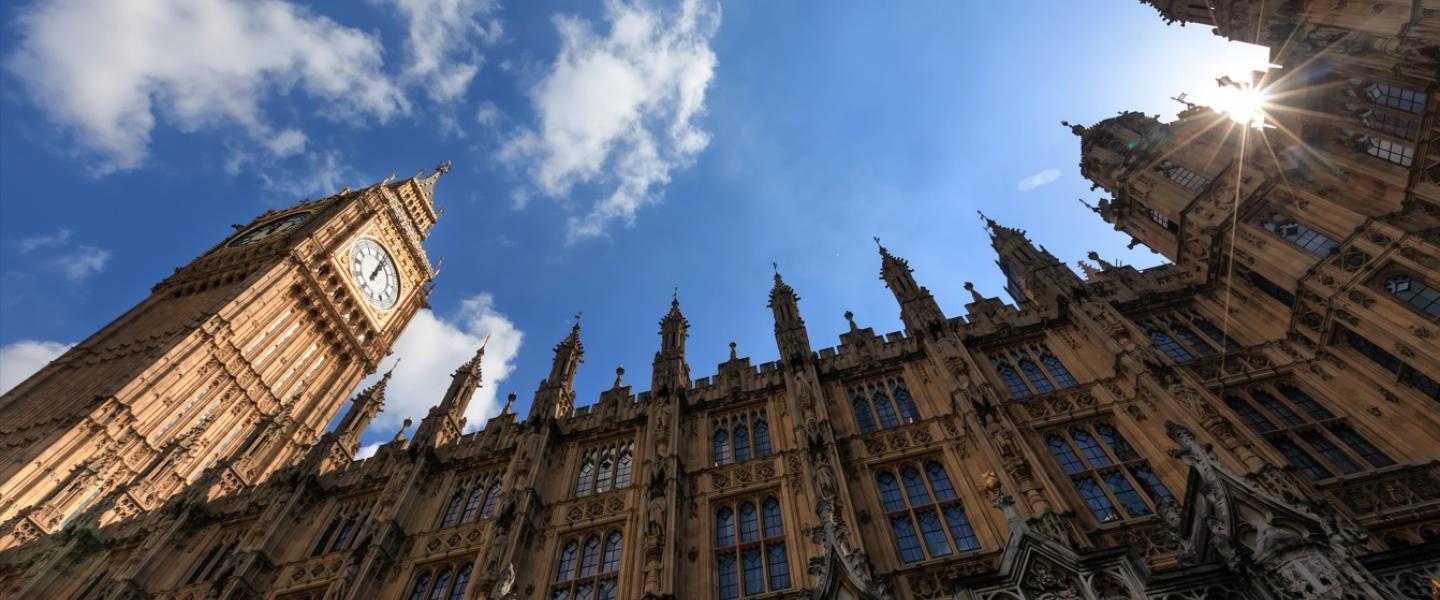The International Defence and Relations Committee Inquiry took the opportunity to examine whether The United Nations Convention on the Law of the Sea (UNCLOS) was fit for purpose in light of the challenges faced in the 21st Century as it approaches its 40th anniversary.
UNCLOS was adopted in 1982. Its purpose is to lay down a comprehensive regime of law and order in the world's oceans and seas, establishing rules governing all uses of the oceans and their resources.
UK House of Lords
On 28th November 2022, The Report was discussed in the House of Lords.
Lady Baroness Anelay said: "It is right that people at sea should benefit from the protection of human rights law just as much as those on land. However, the [UK] Government appear to take a narrow view of human rights protection at sea."
Human Rights at Sea Patron Lord Teverson addressed the House of Lords, adding: "Human Rights at Sea is pushing ahead with a document called the Geneva Declaration on Human Rights at Sea."
He noted that New Zealand and other nations had welcomed the GDHRAS and are keen to engage further. However, despite a positive meeting with the former UK Transport Minister Robert Courts under Boris Johnson's administration, the UK are yet to meaningfully engage.
Lord Teverson went on to ask the Minister to see how the UK Government could help push forward and profile the Geneva Declaration (GDHRAS) to extend human rights under international law.
There is wide recognition that human rights is a key area missing from UNCLOS, which now needs addressing. However, the response from the UK Government and the Minister so far, suggests they are unwilling to use their influence. Further, there is a clear space for the UK to be a global leader in maritime issues, as is stated in the UK 2050 Maritime Strategy.
In November 2021, Human Rights at Sea submitted evidence to the UNCLOS Inquiry. Despite several extensive and evidenced recommendations, there was an inadequate response from the Government regarding human rights protections for people at sea.
UK Government
In the report issued in March 2021, the UK Government were encouraged to substantially acknowledge and agree on the need for better protection of individual fundamental rights for all those persons who live, work and transit by sea, other than within UK territorial waters.
However, crucially it failed to support the position that 'human rights apply at sea, as they do on land.", and weakly commented: "The Government accepts that internationally the applicable jurisdiction for victims of human rights abuses at sea may be difficult to ascertain. There is scope to clarify where victims may bring a complaint or case in the UK."
Baroness Anelay wrote to Lord Zac Goldsmith, Minister for Overseas Territories, Commonwealth, Energy, Climate and Environment, in July 2022 to share her disappointment with the Government's response and raised further questions, including:
I. How does the Government intend to explore the gaps in human rights for workers and other groups at sea, and over what timeframe?
II. We ask again that the Government acknowledge, as recommended, that the issue of human rights at sea applies beyond workers at sea and that it outlines in detail what it considers its obligations to be concerning human rights at sea in general.
III. We ask again that the Government confirms unequivocally that international human rights law applies equally at sea as on land, beyond just the jurisdiction of the ECHR, and to all categories of seafarers, not just workers.
IV. Please provide further details on the UN Cross Agency Task Force, the UK's involvement in it, and the extent to which it is considering human rights for all seafarers, not just workers.
V. Please provide further information on what other avenues the Government is exploring to tackle the issue of forced labour and other labour exploitation abuses at sea.
VI. Please provide clarification as to the Government's position on where victims may bring a complaint or case in the UK. Please also provide clarification as to what the Government considers to be the responsibilities of all states and what steps the Government is taking to ensure all states comply with these responsibilities.
VII. We would like to reiterate this recommendation and ask again whether the Government is planning to work towards a unified approach to human rights at sea.
Lord Goldsmith responded recently and highlighted that the UK Government is "Concerned about the human rights abuses that are taking place at sea." He repeated this in the House of Lords on 28th November; however, this echo of concern has yet to turn into action.
Martyn Illingworth, Head of Operations at Human Rights at Sea, said: "Whilst we are genuinely pleased to see the UK Government recognise human rights abuses at sea exist and state that they are concerned about them, we remain disappointed they are yet to take any tangible action to tackle the countless numbers of abuses occurring at sea in both national and international waters. We continue to urgently call upon the Government to step up and show leadership."
Next Steps
While we wait for action, HRAS will be attending the Wilton Park Human Rights Law at Sea conference, which has been developed in partnership with HRAS Advisory Board member Professor Sir Malcolm Evans KGMG, Professor of Public and International Law at the University of Bristol.
The Conference will reflect on the recommendations of the IRDC's Inquiry Report to develop an understanding of how human rights obligations can be projected into the maritime environment in ways which respect both the essential structures of ocean governance and offer significant rights-protection to people at sea.
Contact: Charlotte Rumbol, Communications Manager and Project Officer: charlotte.rumbol@humanrightsatsea.org
About Sharing. We welcome the use and dissemination of our work with proper accreditation. Please ensure that our Terms of Use are conformed with at all times.
